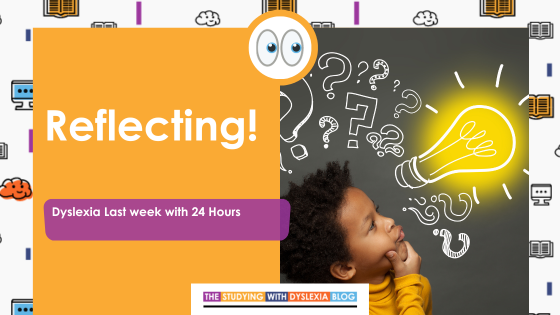Reflecting on the last 24 hours on the as of 12th of January, my journey in the world of dyslexia has been quite illuminating. Throughout my career, I've been privileged to deliver training in schools and support the growth of young people in utilising assistive technology. Just yesterday, I wrapped up a project at a primary school in Widnes. About two months ago, I had introduced them to the potential of existing technologies like Microsoft 365 and its accessibility features. Despite their limited budget, which is a common challenge across the education sector, they've made remarkable progress with their resources, including iPads and computers, significantly impacting lives. The staff's dedication to understanding and employing these technologies to aid their students has been heartening. They recognise the value in tools like speech-to-text and text-to-speech, empowering students to work independently and demonstrate their knowledge.
Witnessing a young person use a computer and iPad for the first time, something we often take for granted, was a humbling experience. With my assistance, a student who usually spent hours editing and formatting his work could, within 20 minutes, produce several lines of text about his classwork. This not only earned him house points but also supported his unique learning needs. The joy and sense of achievement on his face were profound reminders of the impact of our work.
On Wednesday, an number of MP raised an important issue in the House of Commons, questioning why children whose parents can afford assessments receive support, while those who can't are left behind. This highlights a fundamental flaw in our education system. In various Facebook groups, I've seen parents, anxious about being perceived as troublesome, simply striving to support their children - a natural parental instinct. Yet, in the past day alone, I've observed a school with limited funds transform lives, listened to debates in the Commons highlighting systemic failures, and read about a parent who paid for an assessment only to find the school's special needs coordinator too overwhelmed to implement the recommended support.
Lorraine Peterson's observation that we have a 19th-century education system facing 21st-century challenges rings true. The pandemic saw a surge in technology use, but unfortunately, many schools have reverted to old ways, failing to meet the needs of numerous students.
I firmly believe that informed and understanding parents can make a significant difference for their children, much like mine did for me. It's crucial for parents to unite, offer peer support, and collectively voice their concerns to foster positive changes.
Continue the conversation.
There are two ways to engage further: by joining our free Facebook group, Parenting Dyslexia, and/or attending the Dyslexia and Dyscalculia Show on the 15th and 16th of March.
Dyslexia Show | The UK's leading dyslexia exhibition
https://www.facebook.com/groups/parentingdyslexia/
“Empower Dyslexia: Support Our Cause At “Studying with Dyslexia,” we’re dedicated to unlocking the potential of dyslexia and neurodiversity. We’ve chosen to keep our blog accessible to all, recognising that not everyone can afford to pay for vital information right now. If you appreciate our commitment to understanding and supporting dyslexia, consider backing us for three compelling reasons:
1. Empowerment Through Knowledge: Our blog offers deep insights into dyslexia, dispelling myths and highlighting its strengths. We’re a steadfast source of support and awareness.
2. Independent Voice: We’re not beholden to billionaire owners; our independence ensures unbiased and informative content.
3. Every Contribution Matters: Your support, no matter how small, plays a vital role in sustaining our work and reaching more people.
Join our journey by supporting us monthly, starting from just £2. It takes less than a minute to make a significant impact on our mission to provide open, independent knowledge about dyslexia and neurodiversity. Thank you for helping us create a more inclusive world.”

